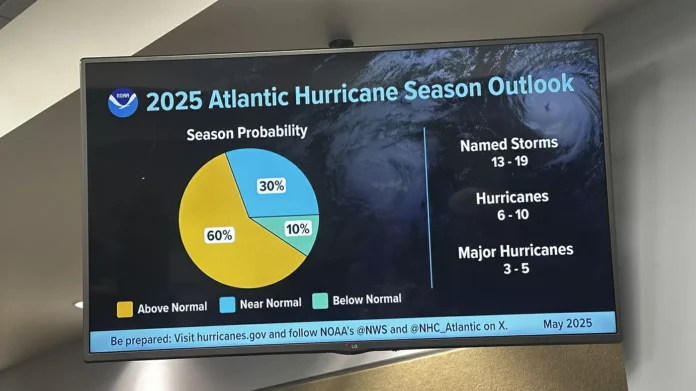With hurricane season now in full swing, many Americans are anxiously watching the weather reports and preparing for potential disasters. However, this year there is an added concern – whether President Trump’s cuts to the federal government have put the nation’s disaster response at risk. This worry is particularly heightened on the Gulf Coast, where storm systems are already forming and critical weather stations are facing significant staffing shortages. As we face this uncertain time, it is important to examine the potential impact of these cuts and what can be done to ensure the safety and well-being of those in the path of these devastating storms.
In recent years, the Gulf Coast has been no stranger to the destructive power of hurricanes. From Katrina to Harvey, these storms have left a trail of devastation in their wake, and it is imperative that we are prepared to face them head on. However, with the current staffing shortages at weather stations, there is a real concern that our ability to accurately track and predict these storms could be compromised. These stations play a crucial role in providing timely and accurate information to emergency responders and the public, allowing for proper preparations and evacuations to take place. Without adequate staffing, the effectiveness of these stations is at risk, leaving the Gulf Coast vulnerable to the wrath of Mother Nature.
The situation is further complicated by the significant budget cuts to the federal government’s disaster response agencies. With the National Oceanic and Atmospheric Administration (NOAA) and the Federal Emergency Management Agency (FEMA) facing reduced funding, there are serious concerns about their ability to effectively respond to hurricanes and other natural disasters. These agencies are responsible for coordinating and providing much-needed resources and aid to affected areas, and any cuts to their budget could have a devastating impact on their ability to fulfill their duties.
The Gulf Coast is particularly at risk due to the unique challenges it faces. Its low-lying geography and susceptibility to storm surges make it particularly vulnerable to the destructive power of hurricanes. In addition, the area is home to many oil and gas refineries, which not only puts them at risk during a storm but also has a significant impact on the nation’s energy supply. Any disruption to these facilities could have far-reaching consequences for the entire country. With the current staffing shortages and budget cuts, the Gulf Coast is facing a perfect storm of potential disaster.
However, it is not all doom and gloom. Despite these challenges, there are steps that can be taken to mitigate the potential impact of these cuts. Firstly, it is imperative that the federal government works closely with state and local authorities to ensure that they have the necessary resources and support to respond to disasters. This includes providing adequate funding and staffing for weather stations and disaster response agencies. It is also vital that they work together to develop comprehensive disaster preparedness plans, taking into account the unique challenges of the Gulf Coast.
In addition, it is important for communities to take an active role in disaster preparedness. This includes staying informed and following evacuation orders when necessary. It also means being prepared with emergency supplies and having a plan in place for what to do in case of a disaster. By working together, we can help to minimize the impact of hurricanes and other natural disasters on our communities.
It is also worth noting that despite the cuts to federal agencies, there are still dedicated individuals working tirelessly to ensure the safety and well-being of those in the path of these storms. From meteorologists to emergency responders, these individuals are on the front lines, doing everything in their power to keep us safe. Their dedication and hard work should not be overlooked or underestimated.
In conclusion, while the concerns about the potential impact of President Trump’s cuts to the federal government on disaster response are valid, it is important to remain positive and focus on finding solutions. By working together and taking the necessary steps to prepare for disasters, we can overcome these challenges and emerge stronger and more resilient. Let us not forget the strength and resilience of the Gulf Coast communities, who have faced and overcome numerous disasters in the past. With proper preparation and support, we can weather any storm that comes our way.

